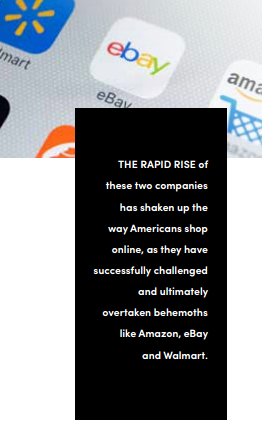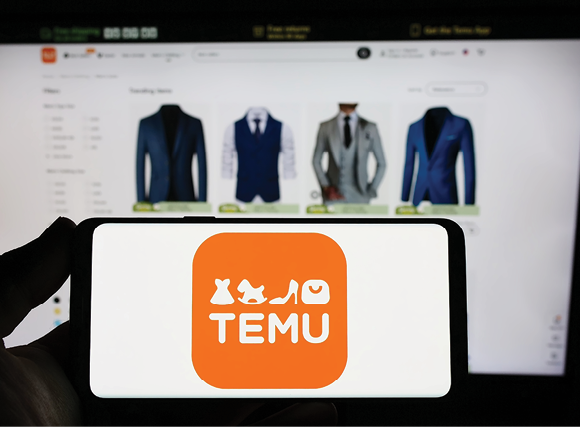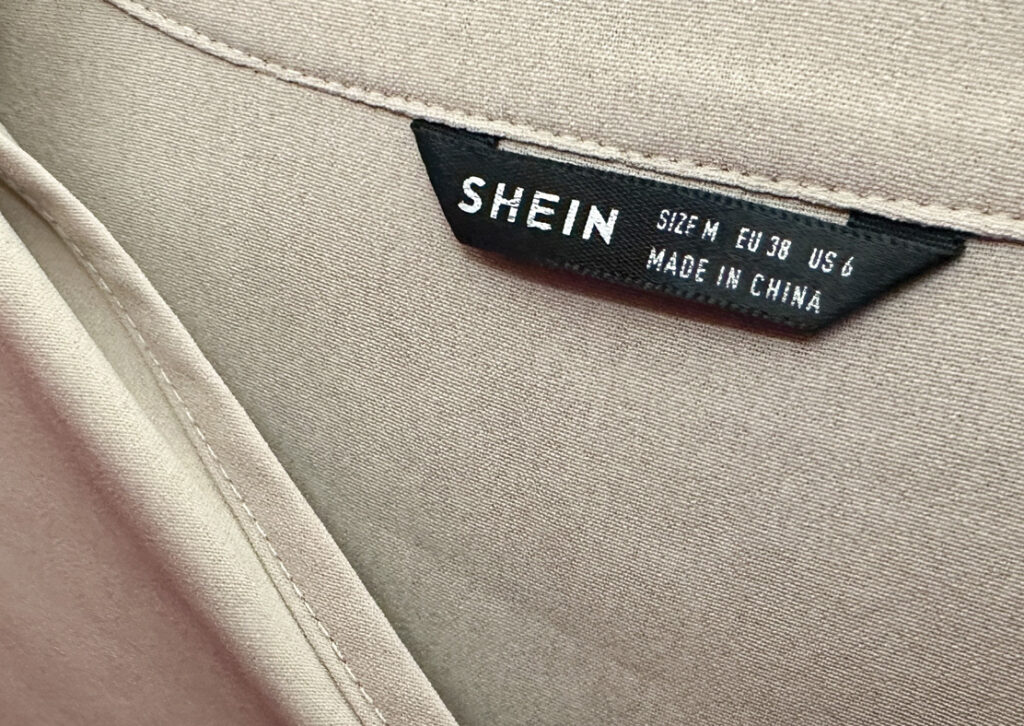What direct selling can learn from these ecommerce goliaths.
If you’re over the age of 30, a Super Bowl commercial might have served as your first introduction to online marketplace Temu. But for millions of young people, Temu is an extremely popular shopping app. And now, thanks to a multi-billion-dollar ad campaign, if you spend anytime online, you are undoubtedly seeing some kind of marketing from Temu. Since launching in the U.S. in September, Temu has skyrocketed in popularity and recently overtook Shein as the most popular shopping app in the U.S. The companies currently sit in first and second place respectively, ahead of both Walmart and Amazon according to SimilarWeb.

The emergence of Temu has rivaled that of Shein, its closest competitor. Shein, the fast fashion juggernaut, has become one of the world’s most popular and visible clothing brands, reaching $100 billion in sales in 2022. If Shein was a country, it would outrank every other country in direct selling on the planet, except for the United States. And they don’t even sell in China. They have 6.4 million TikTok followers and add thousands of new items to their site every single day, utilizing artificial intelligence-based product development and a shockingly nimble supply chain.
The rapid rise of these two China-based companies has shaken up the way Americans shop online, as they have successfully challenged and ultimately overtaken behemoths like Amazon, eBay and Walmart. But with rising economic tensions between the U.S. and China, troubling environmental concerns and pending litigation between the two companies, the sustainability of their success isn’t a given.
Different Approaches. Similar Successes.
While the two companies are often compared to each other, distinct differences exist. Temu provides a platform to thousands of small businesses and microbrands selling across more than 250 product categories. Shein takes a different approach, contracting with hundreds of factories to produce clothing that it sells under its own label.
The companies have comparable shipping times and both offer products from manufacturers all over the world. Temu has a more comprehensive product offering with multiple categories ranging from beauty and fashion items to power tools. Shein is more focused on fashion, primarily for women. Their offering does include some household items, accessories and other fashion items as well as options for men and children.
Despite their differences, the two companies have one important thing in common. “Temu and Shein are disrupting the boring U.S. ecommerce market more than anyone else,” Juozas Kaziukenas, founder of the ecommerce research firm Marketplace Pulse, told The Washington Post.

Affiliate Programs
Another similarity that is of particular interest to direct selling companies are the successful affiliate programs each company runs. Temu’s affiliate program offers budding influencers up to $20,000 a month to promote its products and services. Influencers can provide their followers with discount and referral codes. Established influencers can also receive free items to review and promote via their social channels.
The Shein affiliate program also allows digital marketers, bloggers, influencers, reviewers and other content creators to make income by referring customers to the platform. The free-to-join program allows participants to promote Shein on their websites and social channels with a unique affiliate link. Affiliates can earn a generous 10-20 percent commission on sales.
Both companies have also relied heavily on celebrities to grow their brands. Shein has reported paying thousands of influencers, celebrities, fashion bloggers and reality show contestants around the world to endorse their products.
Game On!
Each brand also specifically targets Gen Z through gamification. This is a growing trend among DTC brands and something direct selling companies can look to in order to attract this key demographic into the fold. Gamification increases retention and engagement through fully immersive experiences and interactive elements, creating a fun and unique experience shoppers love.
Gamification is a relatively new concept, but an undeniable benefit is how this personalized approach turns online shopping into entertainment. Whether it’s mini fashion quizzes, spin-the-wheel discounts or even raising virtual fish, the fun in-app experiences found on Shein and Temu are as much a part of the addictive customer experience as browsing the fashions. And they generate rewards and discounts that keep customers coming back time and again.

Staying One Step Ahead
The ecommerce landscape is becoming increasingly crowded, with new platforms challenging traditional online marketplaces and retail outlets. Companies like Shein and Temu are disruptors, gaining popularity and market share through speed, nimbleness, affordability and an enhanced online shopping experience.
Shein and Temu aren’t just taking on existing platforms like Amazon, they are also targeting each other. This is best evidenced by recent litigation Shein has levied against Temu. The litigation hinges on Shein’s claims that Temu has encouraged influencers to make false and deceptive claims about Shein in their promotion of Temu as well as creating accounts to mimic Shein online. This legal battle illustrates the growing competition between the two companies as well as the huge financial stakes.
Which app is better and which model is more sustainable is something only time will reveal, but direct selling companies can definitely adopt and adapt some of their affiliate and gamification strategies to up their own online shopping experience.
From the May 2023 issue of Direct Selling News magazine.


